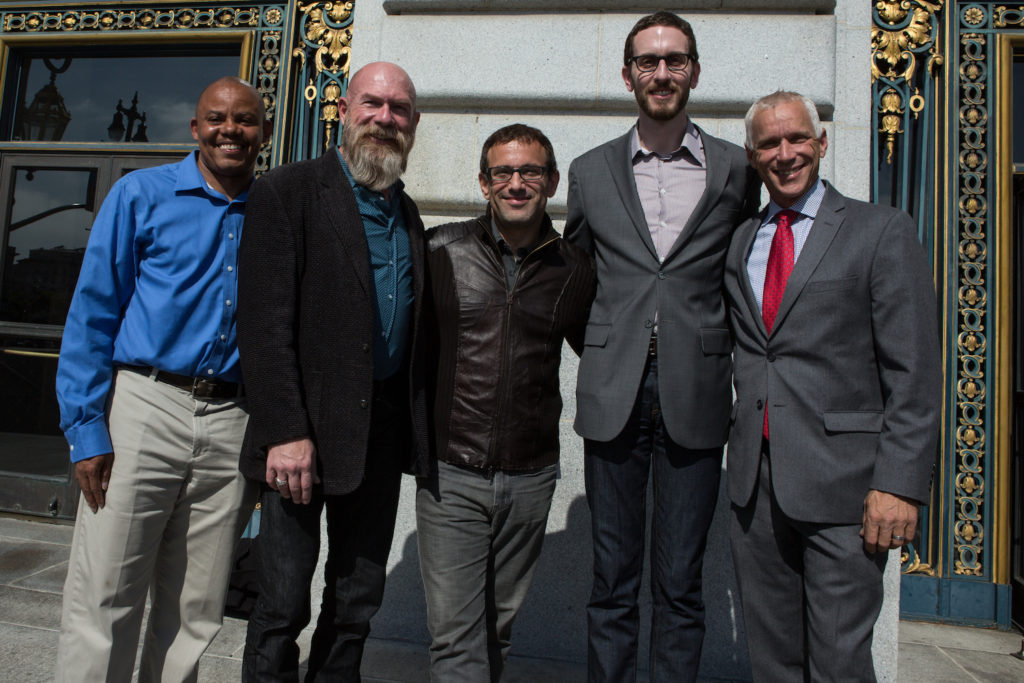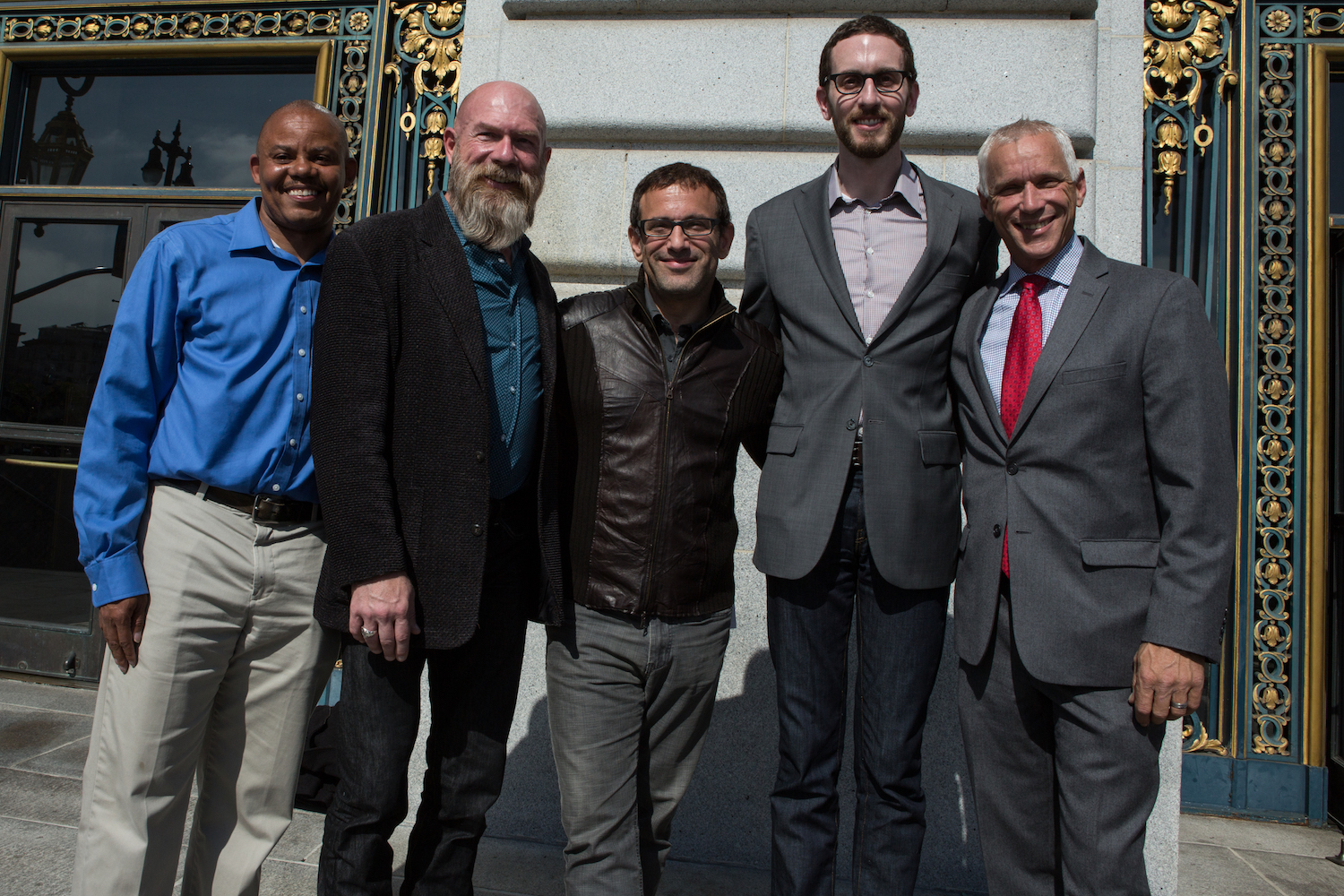
An online video platform that will feature more than 1,000 stories from
people living with HIV/AIDS held its launch event in San Francisco.
Coinciding with National HIV/AIDS Long-Term Survivors Awareness
Day, the June 5 news conference and viewing also took place on the
same day that 34 years ago, in 1981, saw the Centers for Disease
Control and Prevention report the first case of AIDS in the U.S.
Called Generations HIV Online Video Archive, the site is overseen by
the San Francisco-based HIV Story Project, which was founded in 2009
by filmmakers Jorg Fockele and Marc Smolowitz. The filmmakers have
produced two documentaries: Still Around (2011), and Keep the
Promise (2013). Their latest film, Desert Migration , will world
premiere at Frameline 39 June 25.
The HIV Story Project created a booth with a video camera and a touch
screen to make it easy for people to record their stories. Starting in 2010
the booth was placed at many locations around San Francisco, Oakland,
and at the 2012 International AIDS Conference in Washington, D.C.
Local officials and others present at the news conference praised the
project.
“I’m proud to be here to celebrate the people who are chronicling our
history, and the heroes in our community that made sure that this
community survived and thrived,” said Supervisor Scott Wiener, a gay
man who represents the Castro. “Because of those community heroes
who stood up and said that we are not going to fold and we are going to
keep on fighting.”
Wiener added that the community needs to make sure it doesn’t lose
sight of its history.
“We want make sure that the people from all ages know this community
history and what we went through during the HIV/AIDS epidemic,” he
said.
The Generation HIV Online Video Archive includes stories from
longtime survivors and people who witnessed that early HIV/AIDS
epidemic. Initially, the site is home to about 500 videos that users can
explore and share. More content is expected to be added weekly.
“Viewing some of the videos on the website was very emotional to me,
having to come to terms with being a gay man in the late 1980s, during
some of the worst periods of this epidemic,” Wiener said. “Having lost a
friend, having a friend who became very sick and got healthy again; this
is very emotional for a lot of us.”
Tez Anderson, founder of Let’s Kick ASS (AIDS Survivor Syndrome), was also at the news conference and said he supported the
project.
“As we enter the 35th year of the AIDS pandemic, the Generations HIV Online Video Archive is an important chapter in our rich
history,” Anderson told the Bay Area Reporter in a Facebook message. “Finally people can see how varied our stories are.
Together they form a portrait of resilience of the human spirit and serve as reminders of how heroically our tribe rallied together
Follow The Bay Area Reporter
Latest Blogs Victim in ’13 SF Pride shooting agrees to delay in trial – 04 Jun 2015
to take care of each other when no else one would. That’s a big part of our legacy. Our stories give us context and help us make
sense of our lives.”
Anderson, a long-term survivor himself, said he has not yet done a video, but plans to.
Smolowitz, executive producer of the HIV Story Project, pointed out that the archive took a long time to develop and produce,
but he is glad that it is going to be live and people will be able to learn about this aspect of LGBT community history.
“For people who know me, this project was kind of a slow birth. We started this project in 2009,” he said. “After we were
approached by the Shanti Project to make a one-off web video project, we realized that something else is going on. In early 2000
there were not a lot of films about HIV/AIDS, and it seemed like everything went quiet.”
Smolowitz noticed that there was fatigue in the film world, and he wanted to reignite that fire.
“I have been HIV-positive since 1995. I wanted to tell my story and I was wondering if there were other people like me out
there,” Smolowitz said. “We wanted to focus on how people with HIV are living and thriving today with that disease.”
To view the archive, visit www.generationshiv.org.

0 comments